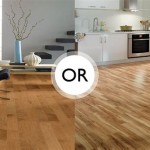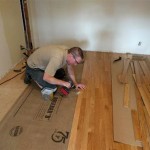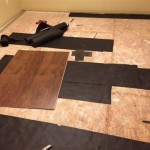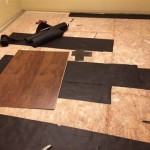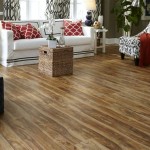Discovering the Essential Aspects of Faux Wood Flooring: A Comprehensive Guide
Faux wood flooring has emerged as a popular and versatile alternative to traditional hardwood floors. With its ability to mimic the beauty of natural wood while offering enhanced durability and affordability, faux wood flooring has gained widespread acceptance. However, navigating the vast array of options available can be a daunting task. To ensure you make an informed decision, it's crucial to consider the following essential aspects when discovering the best faux wood flooring for your needs.
Material Composition
Faux wood flooring is primarily made from two main materials: vinyl and laminate. Vinyl flooring consists of a flexible PVC layer that is printed with a wood-like pattern, providing excellent water resistance and dimensional stability. Laminate flooring, on the other hand, features a high-density fiberboard (HDF) core with a decorative layer topped with a protective coating. Laminate is known for its durability and scratch resistance.
Plank Thickness and Construction
The thickness of faux wood flooring planks influences their durability and performance. Thicker planks (12mm or more) are more substantial and can withstand heavier foot traffic and impacts. Plank construction is another important factor affecting durability. Solid planks are made from a single piece of material, while engineered planks are composed of multiple layers glued together for added stability and resistance to warping.
Texture and Finish
The texture and finish of faux wood flooring play a significant role in its appearance and feel. Embossed textures mimic the grain and imperfections of natural wood, creating a realistic and authentic look. Hand-scraped finishes add a touch of rustic charm, while brushed finishes showcase the wood's natural grain pattern.
Color and Style
The color and style of faux wood flooring should complement the decor of your space. From light and airy hues to deep and dramatic tones, there's a wide range of colors to choose from. Consider the size and lighting of your room when selecting a color; lighter shades can make smaller spaces feel larger, while darker shades can add warmth and depth.
Installation Method
Faux wood flooring can be installed using various methods, including click-lock, glue-down, or floating. Click-lock planks interlock for a quick and easy DIY installation, while glue-down planks require adhesive and are often recommended for high-traffic areas. Floating floors are installed over an underlayment and are not attached to the subfloor, making them suitable for uneven surfaces.
Cost and Value
The cost of faux wood flooring can vary depending on material, thickness, construction, and installation method. Vinyl flooring is generally more affordable than laminate, but laminate offers better durability in high-traffic areas. Consider the long-term value of the flooring and factor in potential maintenance and replacement costs.
By carefully considering these essential aspects, you can make an informed decision when selecting faux wood flooring for your space. Whether you prioritize durability, aesthetics, or budget-friendliness, there's a faux wood flooring option that meets your unique needs and enhances the beauty and functionality of your home.

Discover The Best Flooring For Your Living Room Wood And Beyond Blog
.png?strip=all)
Wood Look Flooring 4 Best Options America

Discover The Best Commercial Restaurant Flooring Lx Hausys

Discover The Best Flooring For Your Living Room Wood And Beyond Blog

Best Wood Flooring For Kitchens Blog Floorsave

Tips Of Finding The Best Laminate Flooring And Benefits Singapore

2024 Flooring Trends 20 Top Ideas This Year

Finding The Best Wood Look Tile Flooring Tiletoria

10 Tips For Finding The Best Engineered Wood Flooring

Slideshow Modern Renovation In Austin Dwell Wood Laminate Flooring Home Decor Kitchen
See Also

